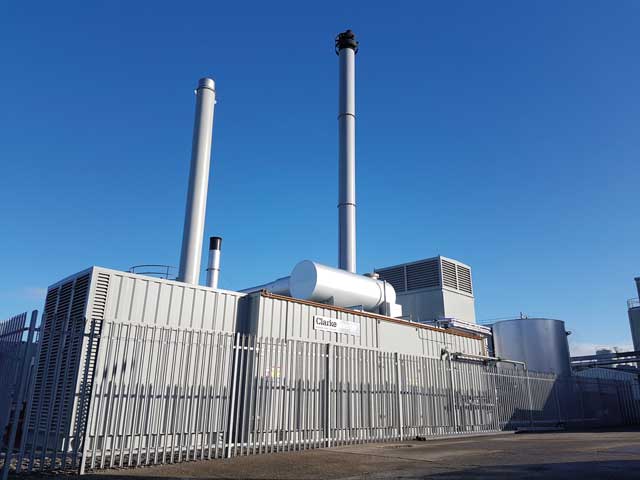
An efficient and cost-effective energy source for industry in its own right, combined heat and power also allows users to earn money by supplying the grid. By Hanaé Chauvaud de Rochefort, senior policy research manager of the Association for Decentralised Energy
Combined heat and power is an attractive technology for industrial users, offering an efficient and cost effective energy source. CHP generates electricity while also capturing usable heat that is produced in the process.
The popularity of CHP can be attributed in large part to the clear commercial justification the technology presents.
CHP’s efficiency arises from capturing heat that would otherwise be wasted in the cooling towers in conventional generation. As a result, installing CHP can reduce industrial site energy costs. Those with CHP installed can also participate in and receive a financial benefit from providing balancing services to the grid during times of high demand. Being able to provide this flexibility is increasingly earning revenue for those with CHP installed.
Market snapshot
There were around 2,200 CHP schemes in the UK at the end of 2016, up from 1,900 in 2012, according to the Department for Business, Energy and Industrial Strategy. There are four principal types of CHP: steam turbine, gas turbine, combined cycle and reciprocating engine. In 2016, CHP schemes generated 20,070GWh, around 6.3% of the entire nation’s electricity supply. These schemes also supplied around 40.4TWh of heat to customers.
The striking feature of the UK’s CHP sector is the extent to which it is tilted towards industry. A report by the International Energy Agency in 2008 found that 90% of UK CHP electrical capacity is used in industrial processes. This picture remains largely unchanged today, with 83% of all UK capacity in industry, supporting productivity and job creation.
Market challenges and opportunities
As the UK moves to decarbonise, the CHP industry will need to evolve and be increasingly flexible. However, this presents an opportunity for both the Government and the industry. Industrial energy users with CHP installed can work with the grid to offer increasing flexibility in meeting demand. In return, these users will receive a financial reward and gain a competitive edge in a global decarbonised economy.
Case study: Groupe Lactalis Caledonian Cheese dairy
The CHP scheme at the Caledonian Cheese dairy in Stranraer, Scotland is a major contributor to the site’s sustainable use of energy. The scheme is projected to generate enough energy to meet 77% of the dairy’s electricity demand and 24% of the required heat demand. The improved efficiencies also reduce carbon dioxide emissions by 2,000 tonnes annually, while dramatically reducing imported electrical costs.
BasePower contracted with Clarke Energy to provide a containerised energy centre (an entire CHP scheme producing power, steam and hot water), which was commissioned in December 2016. The main driving factors for undertaking this project were to maximise financial savings; increase efficiency of operation; and improve reliability and resilience.
The energy centre was sized to provide the creamery’s 2MW power base load, with an electrical efficiency of 44%, and 1MW each of steam and hot water for use in the cheesemaking process.
Having evaluated the site’s energy demand and information provided by BasePower, Clarke Energy installed one of GE’s Jenbacher JMS612 reciprocating gas engines. The CHP works in conjunction with the dairy’s fine temperature and flow control requirements, for consistently top-notch cheese production.
CHP is an ideal solution for high heat and power intensive food manufacturers to address issues including rising energy costs, pressure from retailers to reduce their environmental footprint and to meet climate change targets.
Further information from the Association for Decentralised Energy, www.theade.co.uk

